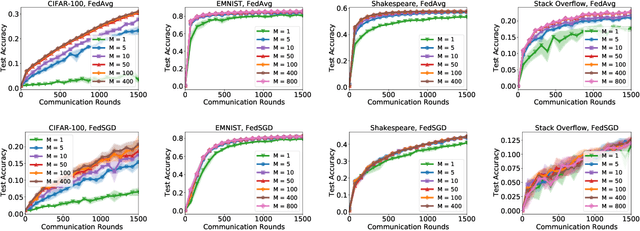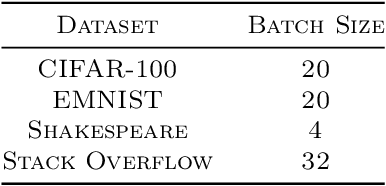On Large-Cohort Training for Federated Learning
Paper and Code
Jun 15, 2021



Federated learning methods typically learn a model by iteratively sampling updates from a population of clients. In this work, we explore how the number of clients sampled at each round (the cohort size) impacts the quality of the learned model and the training dynamics of federated learning algorithms. Our work poses three fundamental questions. First, what challenges arise when trying to scale federated learning to larger cohorts? Second, what parallels exist between cohort sizes in federated learning and batch sizes in centralized learning? Last, how can we design federated learning methods that effectively utilize larger cohort sizes? We give partial answers to these questions based on extensive empirical evaluation. Our work highlights a number of challenges stemming from the use of larger cohorts. While some of these (such as generalization issues and diminishing returns) are analogs of large-batch training challenges, others (including training failures and fairness concerns) are unique to federated learning.
 Add to Chrome
Add to Chrome Add to Firefox
Add to Firefox Add to Edge
Add to Edge